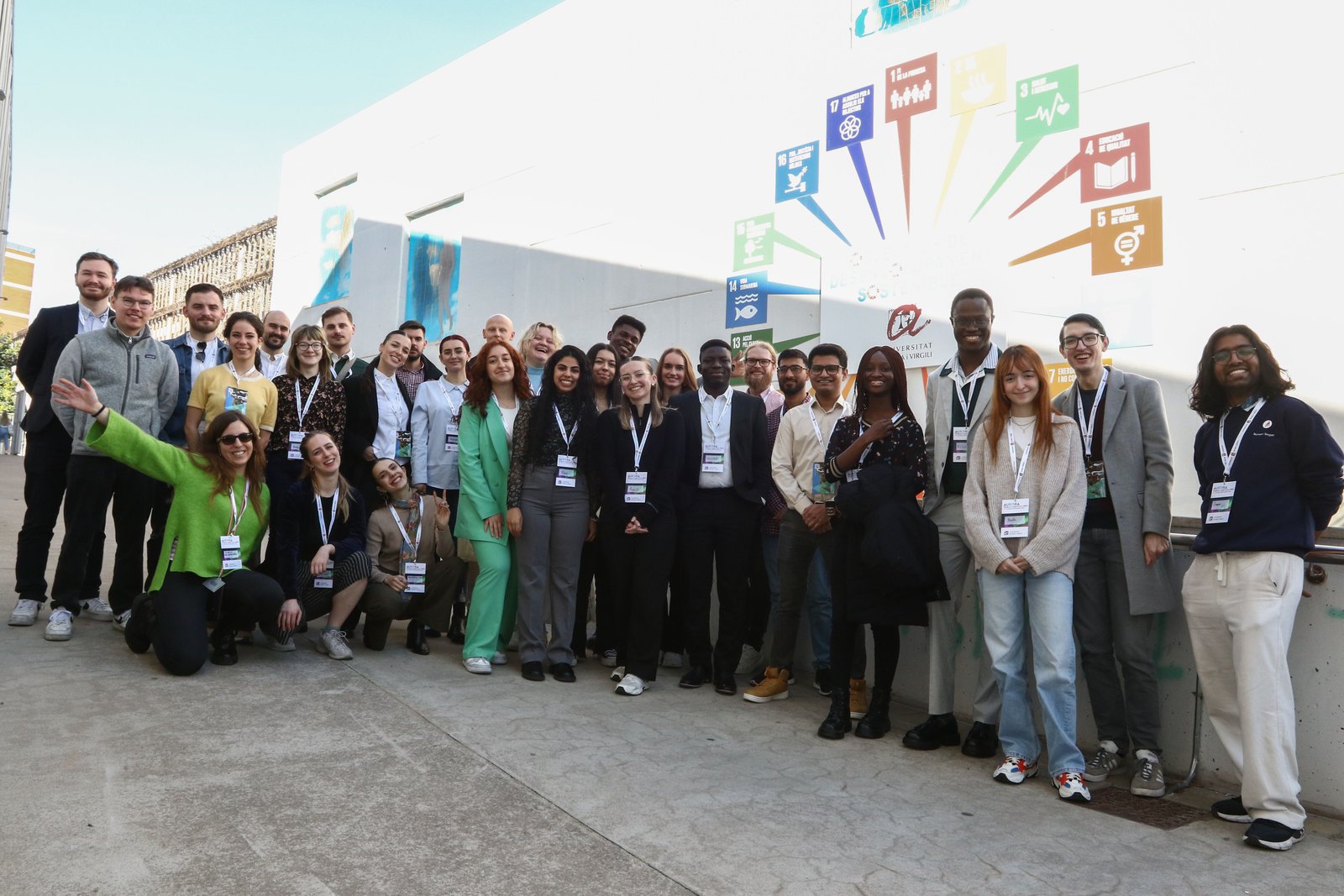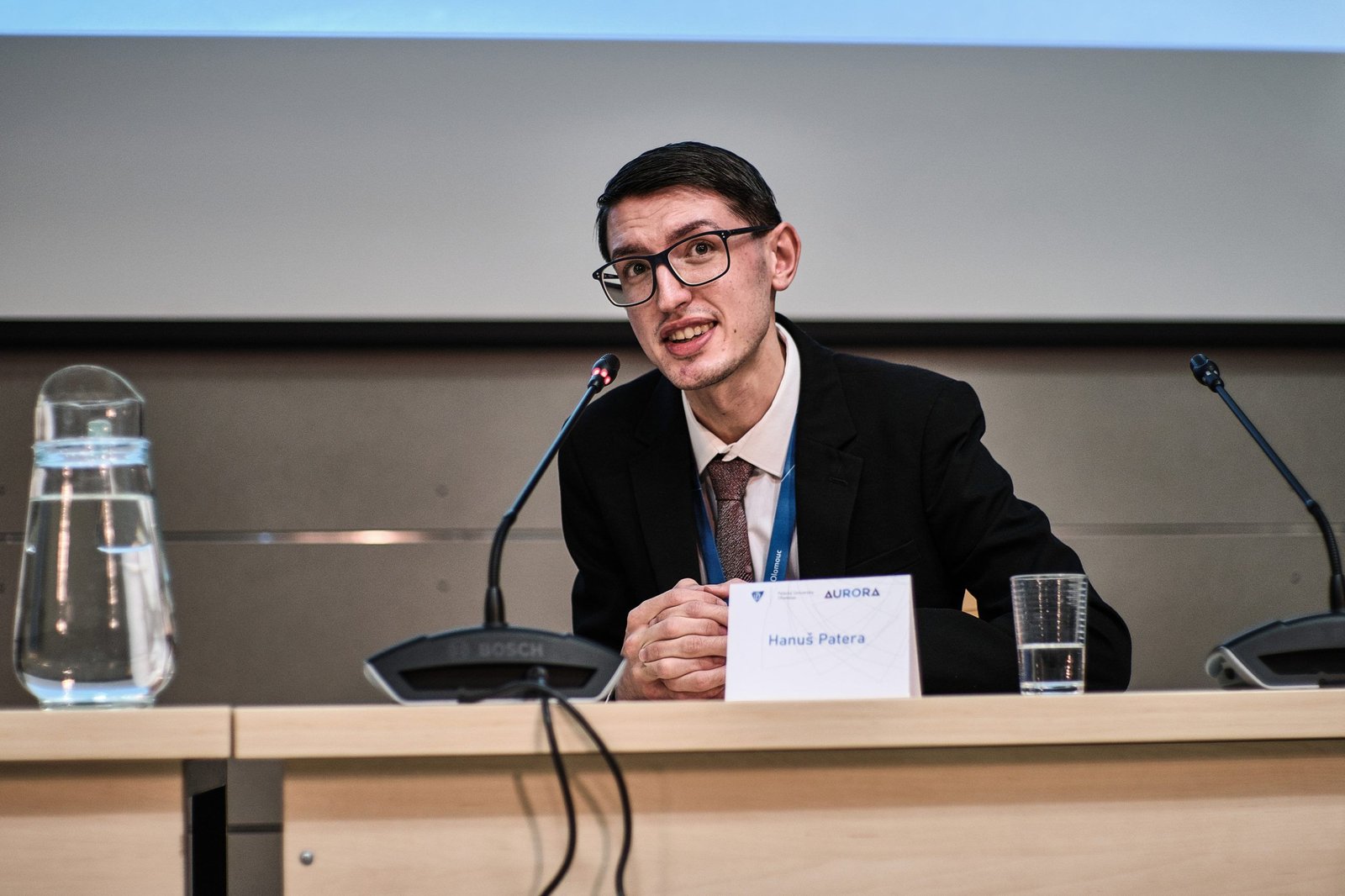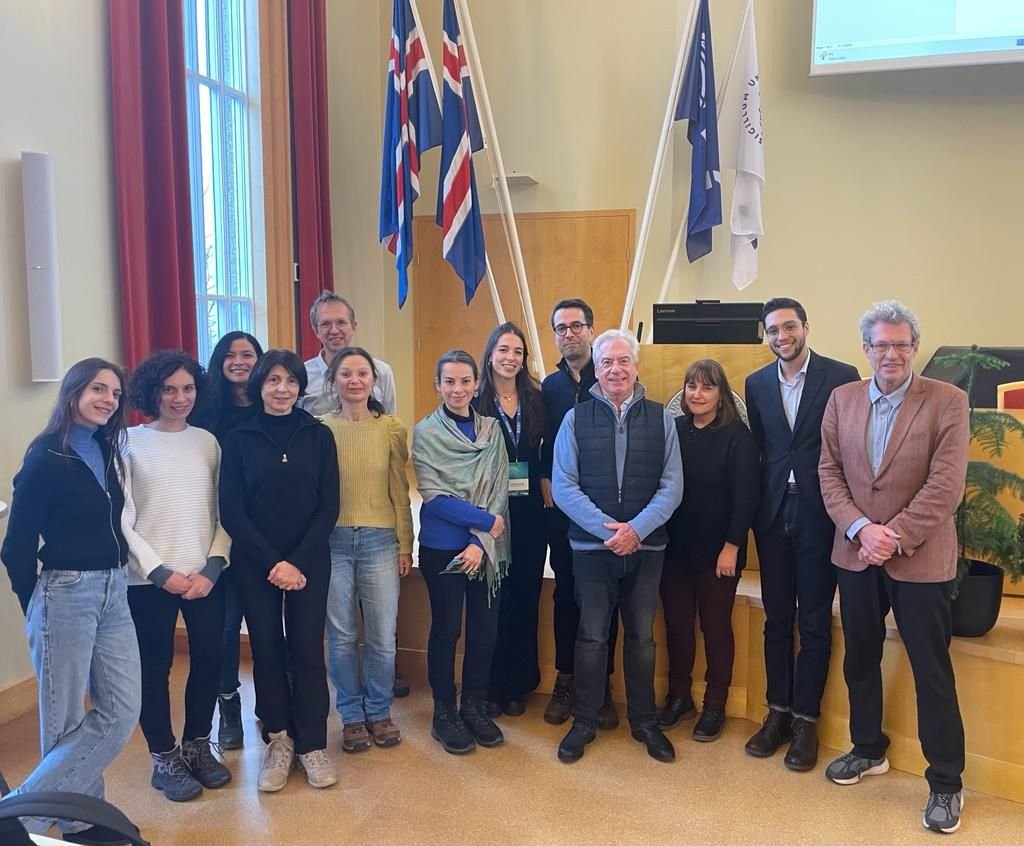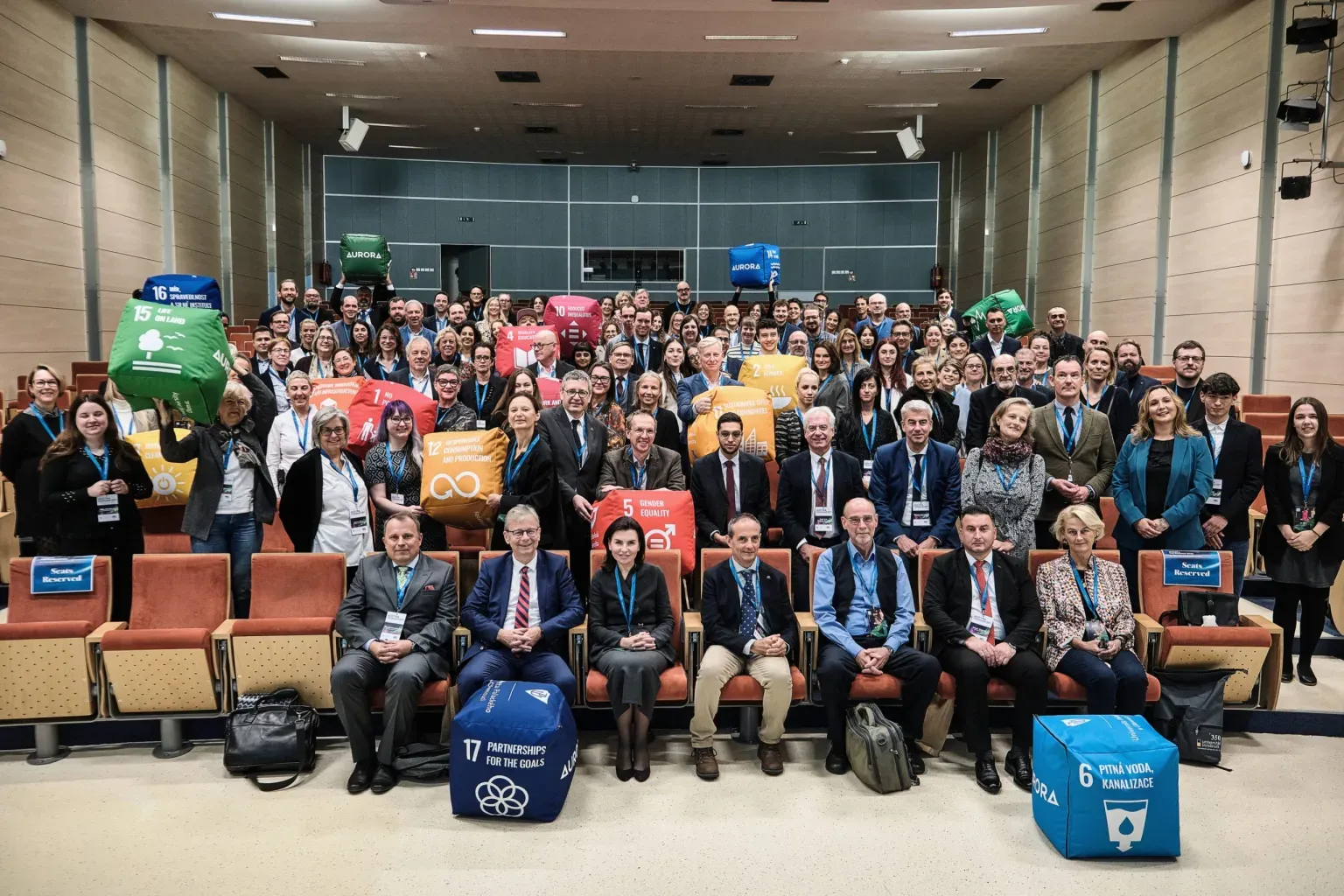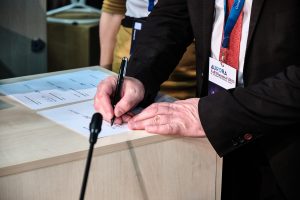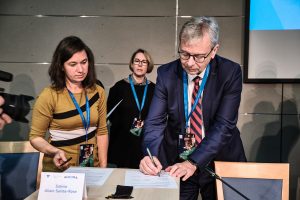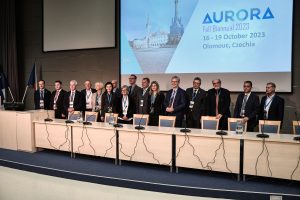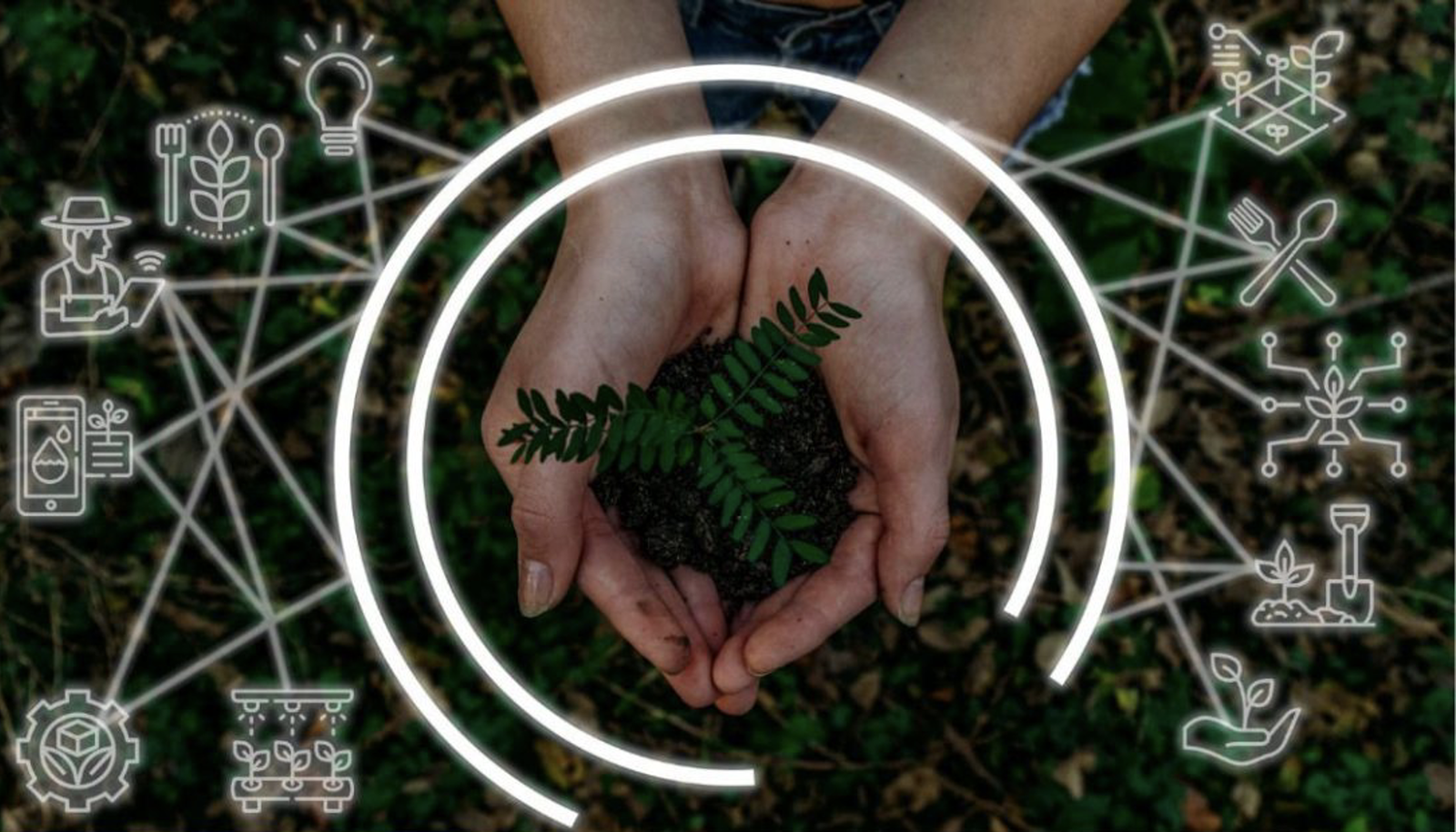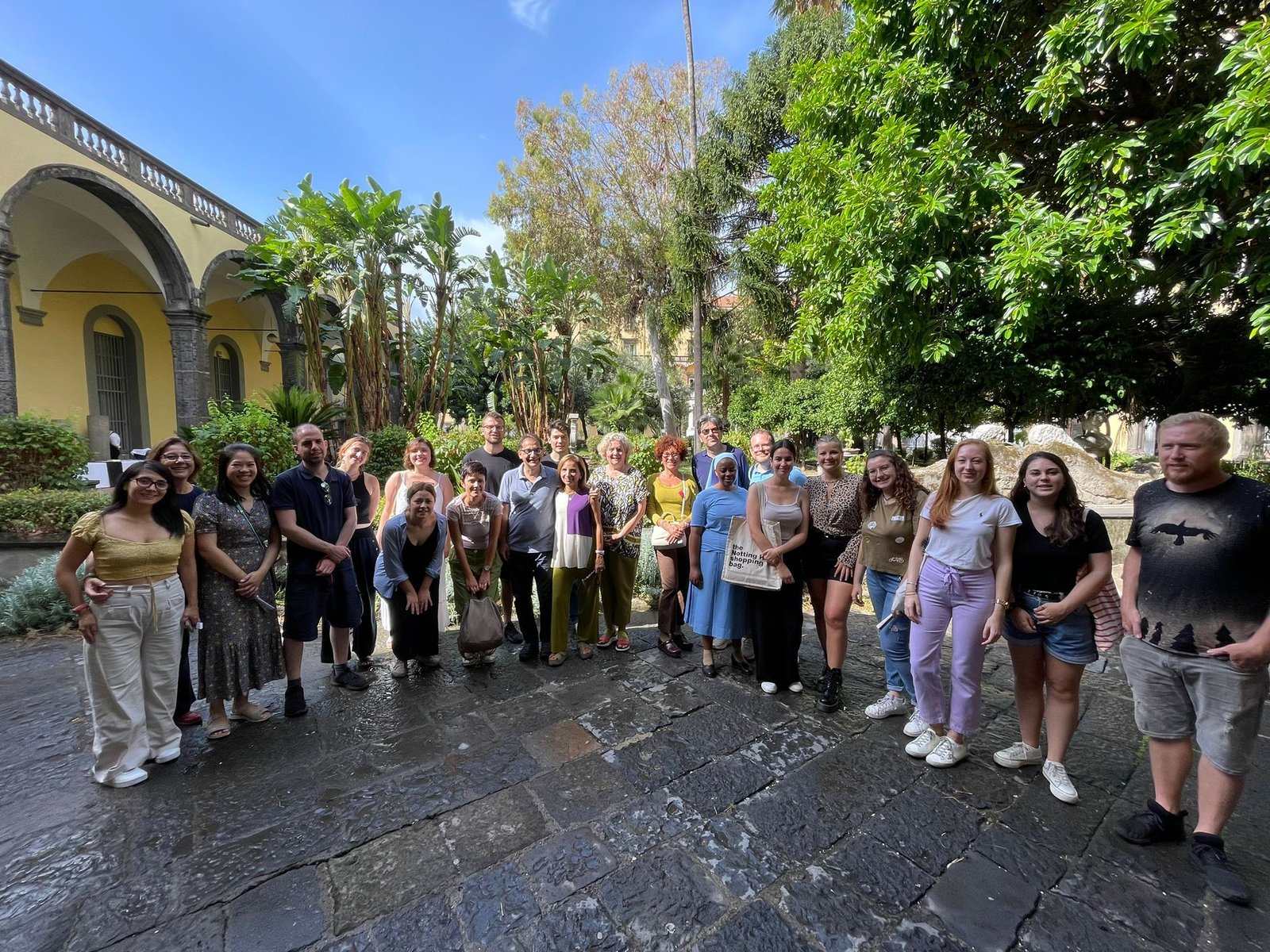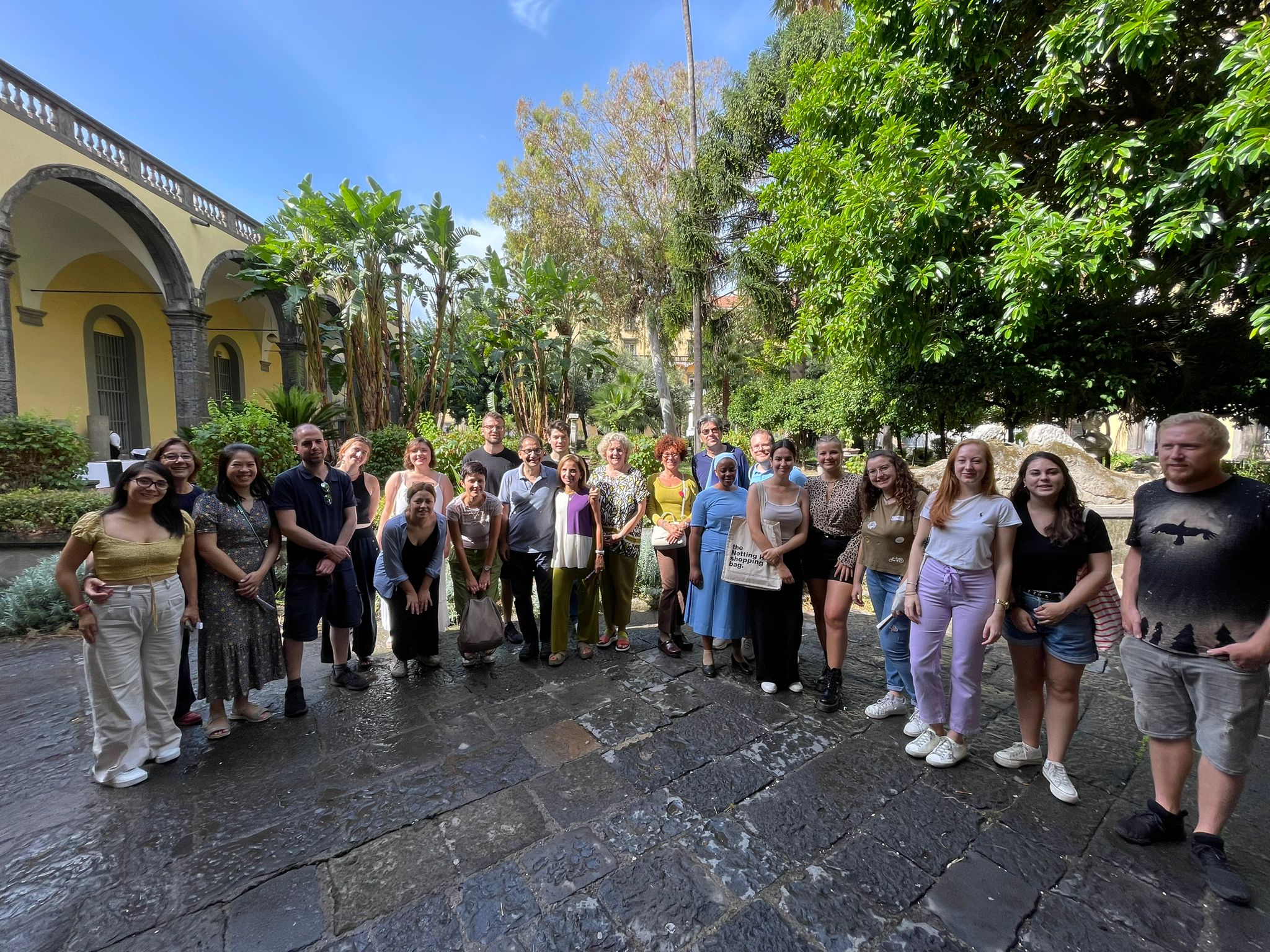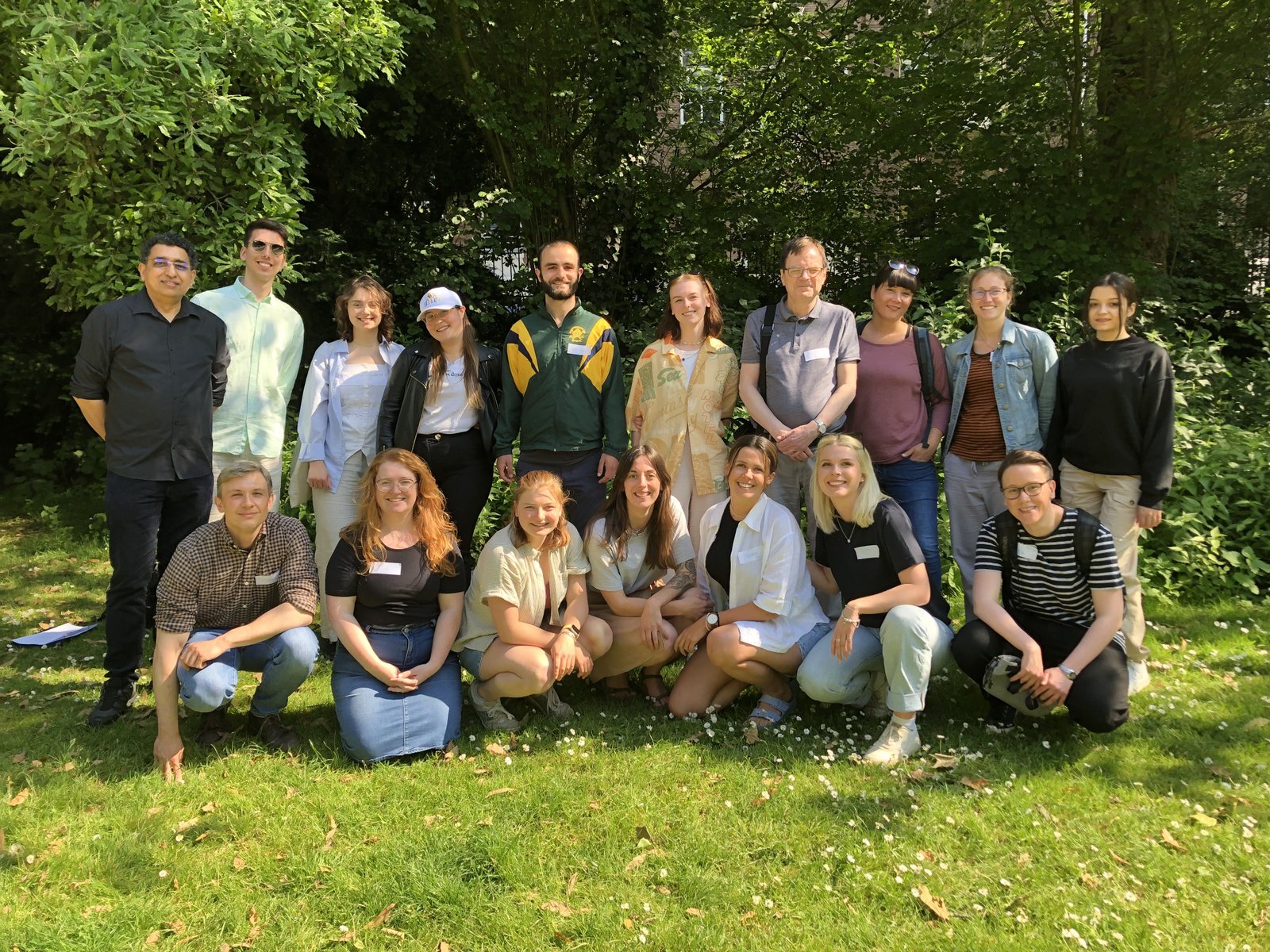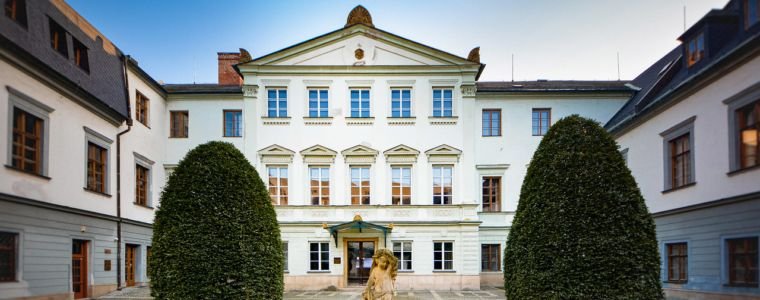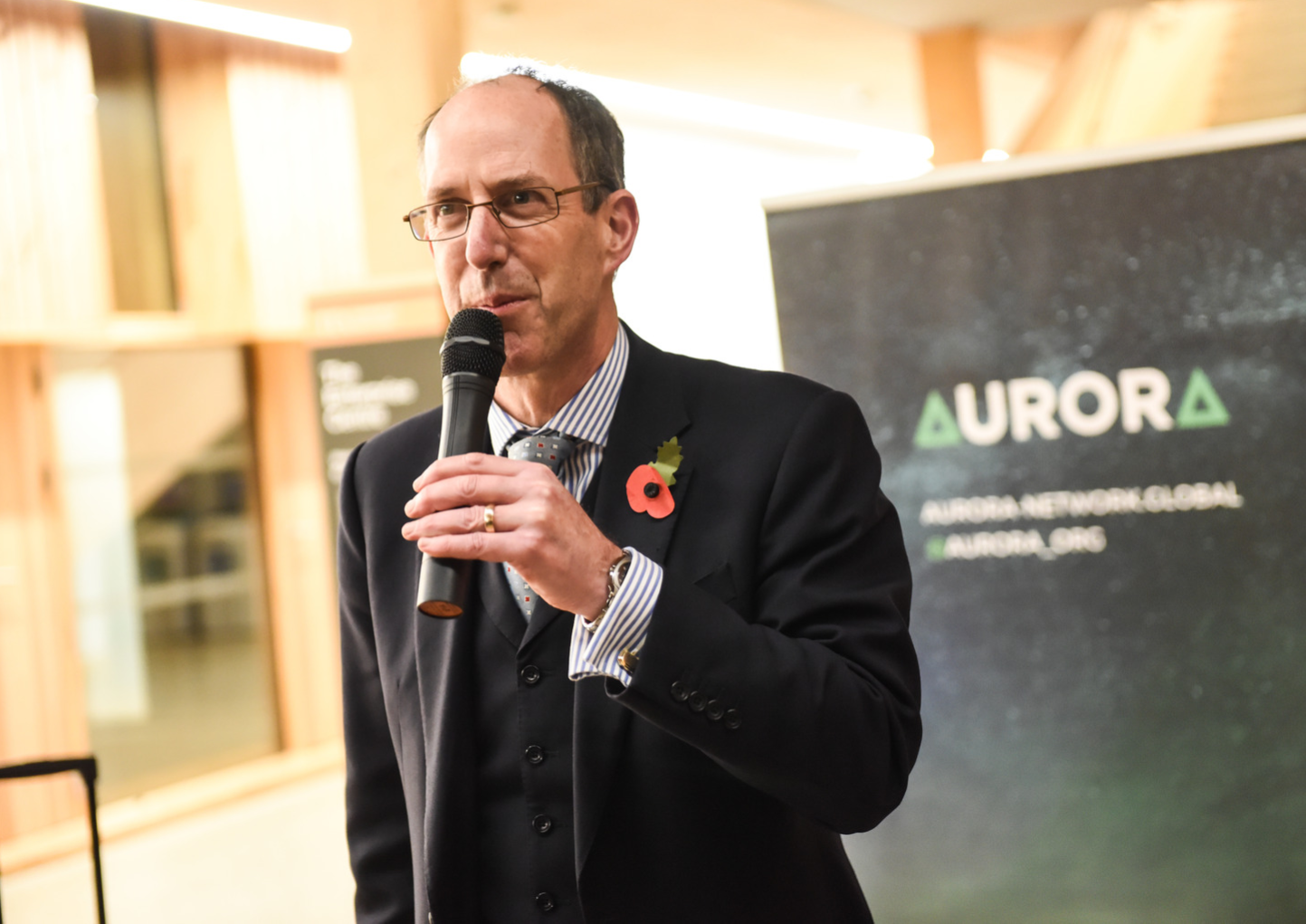Aurora Student Conference 2024 Promotes Intercultural Understanding and Collaboration
Hosted by the Universitat Rovira i Virgili (URV) in Tarragona, Spain, the Aurora Student Conference 2024 brought together students from across Europe for two days of immersive cultural exchange and collaborative workshops.
Open to all Aurora Student Council members and Aurora Student Ambassadors, this conference aimed specifically to promote intercultural understanding and collaboration among its participants. As such, the event featured a diverse array of activities, including cultural learning sessions, language quizzes, and workshops. Attendees had the opportunity to engage in cultural speed dating, traditional dance sessions, and peer-learning discussions.
This annual student conference is part of the goals set within the Aurora 2030 Work Package 7 on Capacity Building and Community Engagement, to upscale the engagement of the Aurora universities’ student communities by encouraging teamwork and partnership between them. The two-day programme kicked off with a warm welcome by Josep Pallarès, Rector of the URV, and Joan-Miquel Canals, URV’s Commissioner for International Networks. Following the opening session, students were invited to participate in immersive intercultural activities that offered an eye-opening experience and a better understanding of URV’s community and the lively Catalan culture.
Embedding Aurora Values into the Student Community
Delving deeper into the essence of Aurora, student participants explored its vision, ambitions, and achievements through a comprehensive introduction. This session provided invaluable exposure – particularly for students new to Aurora – on what Aurora represents to its internal and external stakeholders. It gave light to the Aurora vision to match academic excellence to societal relevance, and emphasised how students can play a role in contributing to the Aurora mission and in affecting positive impact.
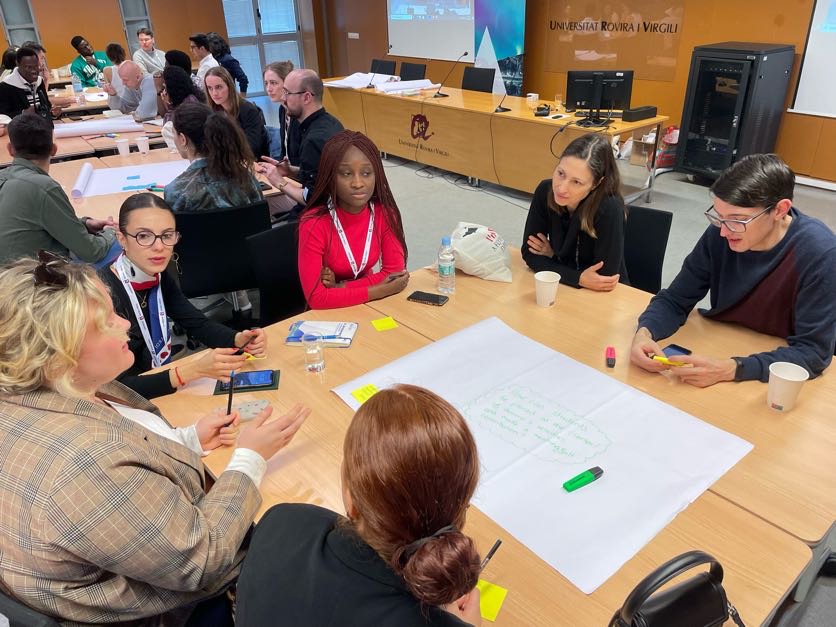
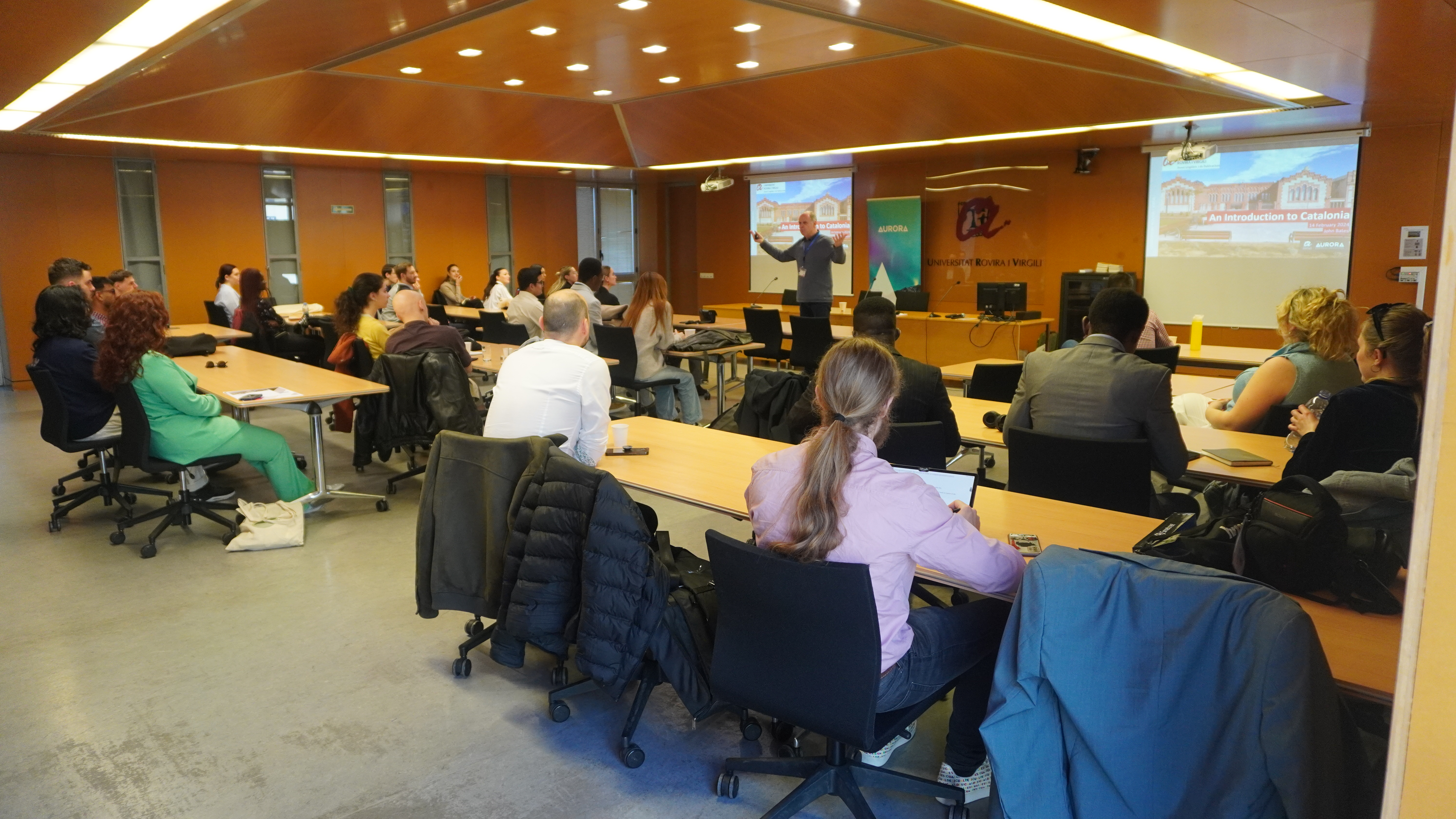
Throughout the conference, participants engaged in thought-provoking discussions during the World Cafe session, where they brainstormed and shared perspectives on the Aurora values. Topics ranged from Diversity and Inclusivity to International Education, emphasizing the dedication of Aurora members to nurturing a diverse and globally-aware academic community.
Enhancing Personal Development
Part of the Aurora Student Conference included a workshop entitled “Speak UP!”, hosted by academic Markus Öbrink from Palacky University Olomouc. Aimed at enhancing students’ communication skills, the workshop consisted of practical exercises and guidance that enabled students to learn tools and strategies for effective public speaking.
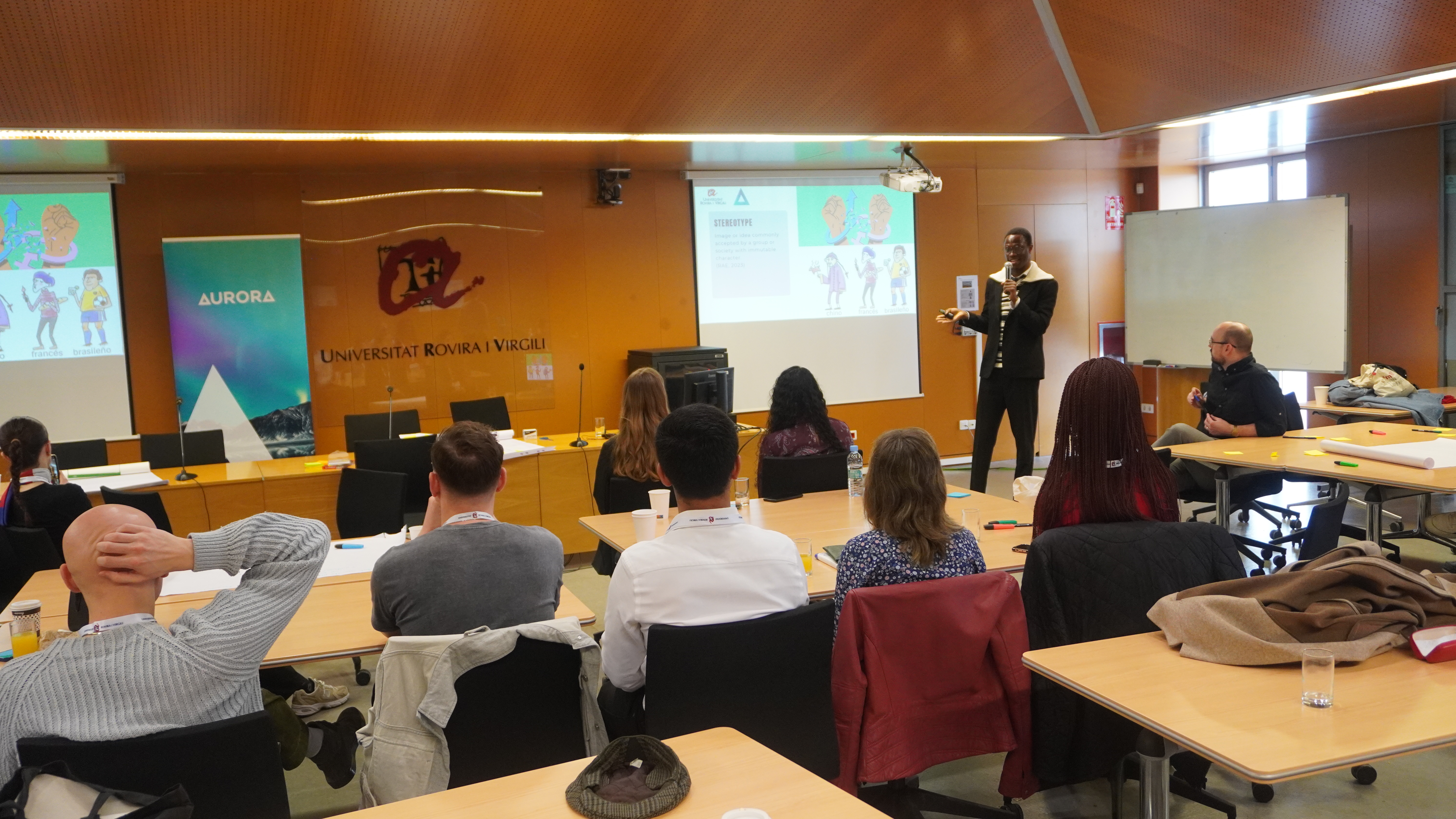
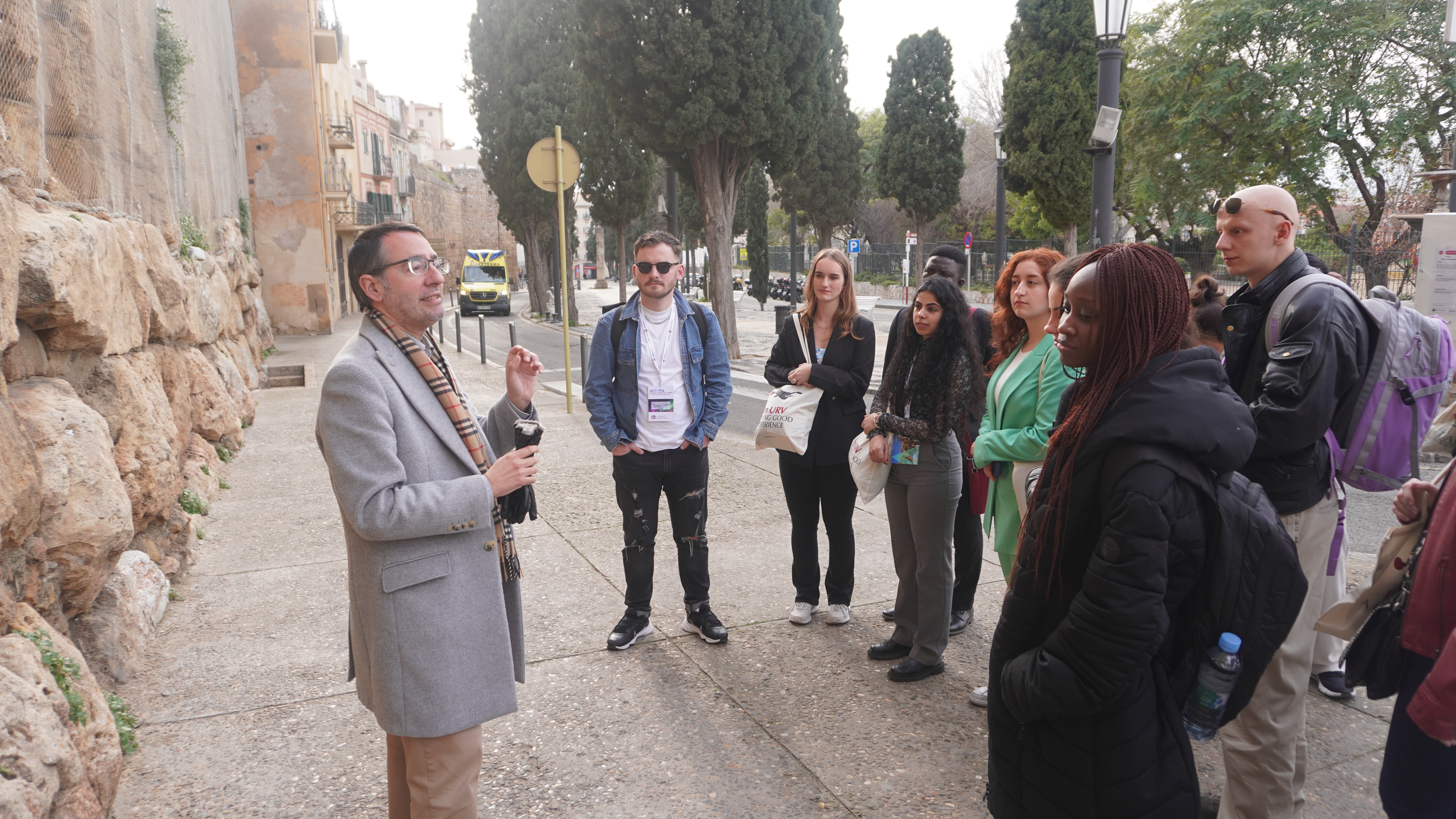
During the two days, attendees had the opportunity to explore the historical city of Tarragona and discover its vibrant Catalan culture. Guided tours offered glimpses into the city’s heritage, complementing the conference’s focus on intercultural understanding and collaboration.
The Aurora Student Conference 2024 underscored the importance of cross-cultural dialogue, and fostering connections and understanding in today’s globalised world. The conference left Aurora students inspired to continue building bridges across borders, both in Europe and beyond.
